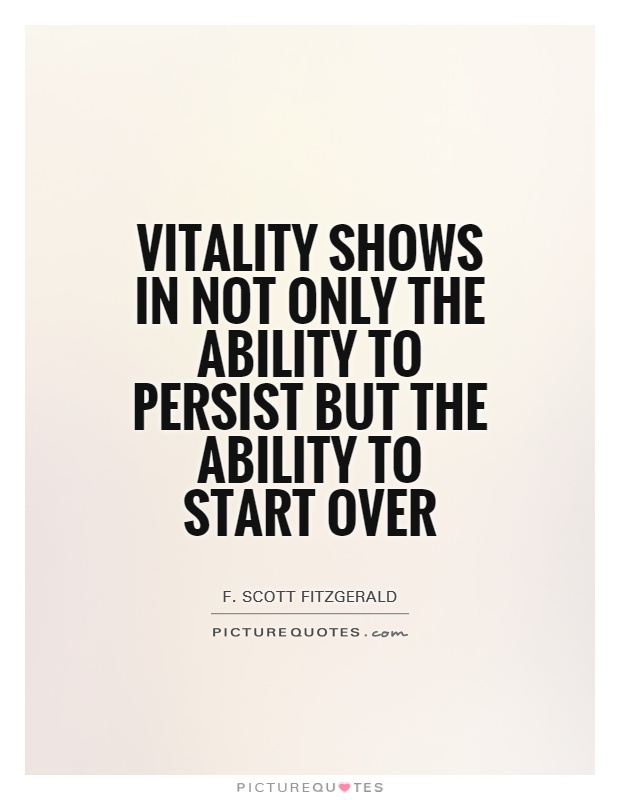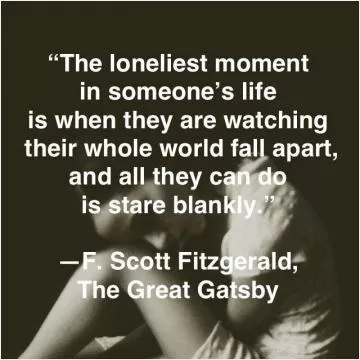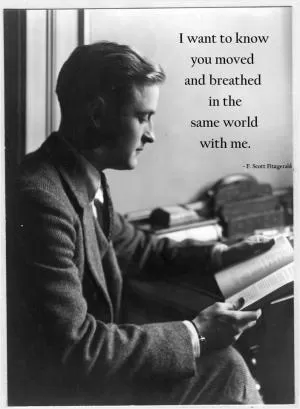Vitality shows in not only the ability to persist but the ability to start over

Vitality shows in not only the ability to persist but the ability to start over
F. Scott Fitzgerald, the renowned American author of the Jazz Age, is often associated with themes of vitality, resilience, and the ability to start over. His own life was marked by highs and lows, successes and failures, but through it all, he displayed a remarkable ability to persist and reinvent himself.One of the most famous examples of Fitzgerald's resilience is his novel "The Great Gatsby." The protagonist, Jay Gatsby, is a man who is constantly striving to reinvent himself and start over. Despite his humble beginnings, Gatsby is able to amass a fortune and create a new identity for himself in pursuit of his unattainable dream, Daisy Buchanan. Gatsby's vitality is evident in his unwavering determination to achieve his goals, even in the face of insurmountable obstacles.
Fitzgerald himself experienced his fair share of setbacks and challenges throughout his life. Despite achieving early success with novels like "This Side of Paradise" and "The Beautiful and Damned," Fitzgerald struggled with alcoholism, financial difficulties, and personal turmoil. However, he never lost his ability to persist and start over. In fact, some of his most acclaimed works, such as "Tender is the Night" and "The Last Tycoon," were written during periods of personal hardship.
Fitzgerald's ability to reinvent himself and persevere in the face of adversity is a testament to his vitality as a writer and as a person. His characters often embody this same spirit of resilience and determination, reflecting his own struggles and triumphs. In the end, Fitzgerald's legacy is not just his literary achievements, but also his ability to inspire others to keep going, no matter what challenges they may face.












 Friendship Quotes
Friendship Quotes Love Quotes
Love Quotes Life Quotes
Life Quotes Funny Quotes
Funny Quotes Motivational Quotes
Motivational Quotes Inspirational Quotes
Inspirational Quotes